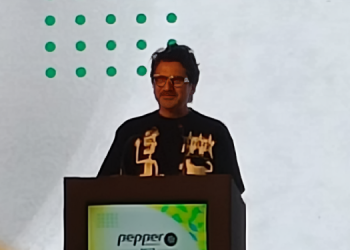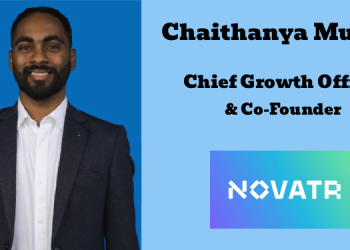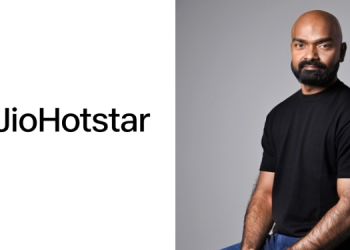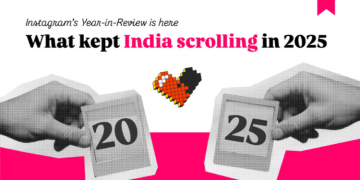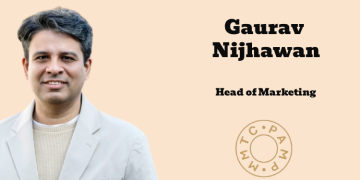Tech giant Google has further delayed the phase-out of third-party cookies in its market leading Chrome browser. In 2021, Google had announced that it would end the use of third-party cookies in Chrome by the end of 2023. Now, as per the new announcement from Google, the cookies will be phased out only in the second half of 2024.
In 2021, Privacy Sandbox (an initiative started by Google to create web standards for websites to access user information without compromising privacy) introduced the Federated Learning of Cohorts proposal (FLoC) which it claimed could be an effective replacement for third-party cookies.
Anthony Chavez, VP, Privacy Sandbox, in his blog post elaborated on the decision to delay cookie phase-out: ‘The most consistent feedback we have received is the need for more time to evaluate and test the new Privacy Sandbox before deprecating third-party cookies in Chrome.’
He added, “As developers adopt these APIs, we now intend to begin phasing out third-party cookies in Chrome in the second half of 2024.”
Google is also expanding testing windows for the Privacy Sandbox APIs before it disables third-party cookies in Chrome. The Privacy Sandbox APIs are expected to be launched by the third quarter of next year and will also be available in Chrome.
Medianews4u.com spoke with industry practitioners to find out what this move by Google means to marketers and digital ads.
According to Jithin George, Chief Product Officer, Voiro, the extension of the timelines to 2024 will help marketers develop better solutions.
“Marketers rely heavily on third-party cookies to identify the right people to target their ad campaigns. With the deadline looming close, marketers were working closely with ad tech partners to come up with solutions to still be able to target users after the deprecation of third-party cookies,” he adds.

Ambika Sharma, Founder & MD, Pulp Strategy, shares the opinion that the delay has given the advertising industry additional time to refine technical approaches and drive greater adoption before the transition finally happens.
She adds, “Advertisers will have time to develop and test new targeting methods and signals. This can drive impressive results for publishers and advertisers. With this delay, the industry must continue to work together and test privacy-first solutions that will enable safe, data-driven advertising in the future. More and more companies should diversify their marketing mix, create partnerships with affiliates or influencers that focus on building direct customer relationships and further expand their first-party data ecosystem.”

“In my opinion, this was destined to happen. Google is currently refining the design proposals based on input from developers, publishers, marketers, and regulators via forums like the W3C. Improving people’s privacy, while giving businesses the tools they need to succeed online, is vital to the future of the open web. The marketing and advertising industry will get some more time to adopt this huge technological shift,” says Rohit Arora, Vice President – Tech and Strategic Initiatives, Xapads Media.
For Kowshik Komandur, AVP, Onmobile Global, the announcement from Google doesn’t come as a surprise. He points out that cookie-based advertising has been widely criticised for being intrusive and there is a general belief that this (phasing out third-party cookies) is definitely a move good for end consumers and companies who recognise the need for privacy and trust. Yet, for advertisers, it remains an important tool to track and gather data that is critical to informing user behaviour and targeting across the web.
“They are used to track website visitors, improve the user experience, create personalised onsite experiences, and collect data to help target ads to the right audiences. The part that will be impacted is where the advertisers place the cookies to understand the user’s behaviour,” he adds.
“There is no doubt the efficacy of cookie-based targeting practices will be impacted. But I believe brands and marketing companies with strong first-party data will continue to have the relevant user behaviour and continue their targeting. CPMs for quality data will likely rise. Many advertisers will look to a more sophisticated approach to make ads more relevant instead of just chasing down what they think is the right target,” Komandur explains.

“The fact is, unlike Apple, Google is a lot more dependent on ads, so it’s unlikely they will not factor in advertisers’ interests. Moreover, from a marketer’s perspective, meaningful targeting and tracking measures like interest-based and user-actions are good or even better metrics than any fingerprinting, and as long as Google solves for those to remain insightful, I don’t see the future being all that problematic for ethical marketers,” says Santosh R, Co-Founder & CMO, Elever.

“There will be an immediate impact on the size of most third-party audiences (audiences whose data is collected solely through third-party cookies),” observes Rishi Sharma, CMO, Zolo.
“It will become increasingly difficult to scale down audience sizes for media buying activity, which will result in low conversion rates and irrelevant targeting. Marketers should develop fresh approaches to audience analysis and rely on other strategies, like email marketing. While this is going on, businesses that process and sell advertising data must also come up with fresh approaches to reliably gather and aggregate audience data without the need for third-party cookies. And the next steps for organisations and marketers are dependent on these first-party data techniques,” he adds.
Brand Perspective
“While we have been leveraging the power of third-party cookies for the longest time, increased privacy is the need of the hour where users will be in better control of their data and how it is being used,” says Kiran James, AVP – Marketing and Product Management, Muthoottu Mini Financiers.
“We envisage our spending to increase in the near to short term to achieve our objectives due to the new policy taking shape as we parallelly build our first-party data stronger to ensure there is no disruption when we are leveraging digital marketing, which we consider as a strong pillar of growth. We are exploring multiple platforms, including leveraging the power of first-party and second-party data and deploying advanced tech to ensure we get the right data points to target our users efficiently and achieve our business goals through newer formats and existing mediums. While we are working on multiple fronts, we are also keeping a close tab on Topics API, which sounds promising in its approach and is a good alternative for third-party cookies the way it is tracked now to ensure we get maximum ROI in our campaigns,” James adds.
For marketers and advertisers, the delay gives time to test cookie replacements ahead of deprecation and to continue to investigate ways to improve data connectivity and improve match rates.


